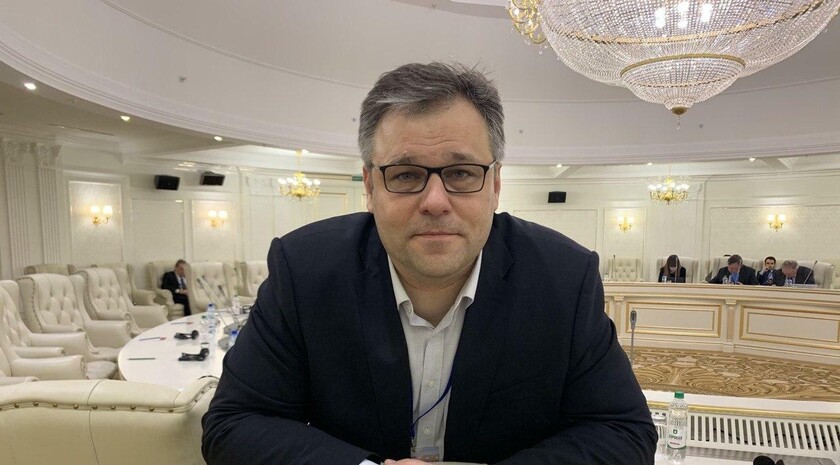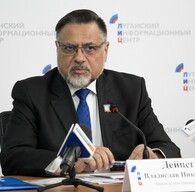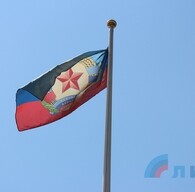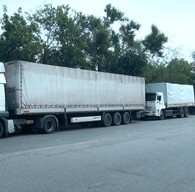Ukrainian army commander-in-chief Valery Zaluzhny and acting head of the Ukrainian delegation in the Contact Group Alexey Reznikov lie about Kiev’s fulfilling the Additional Measures to Strengthen the Ceasefire and Control its Implementation, Lugansk People’s Republic representative in the Contact Group working group on political settlement issues Rodion Miroshnik said in his Telegram channel.
Miroshnik said that “at the Contact Group meeting on Thursday, Reznikov, commenting on Zaluzhny’s statement on cancellation of all restrictions on ‘return fire,’ “recommended not to pay attention to what bloggers are saying,” assuring that Ukraine honors the accords and that there have been no orders to cancel its commitments.”
“Apparently, the deputy premier called the Ukrainian commander-in-chief a blogger, who had made this statement and this video has been reposted from channel to channel for two days exciting Ukrainian radicals,” he said.
Reznikov and Zaluzhny said loud and clear that Ukraine fulfilled the Additional Measures to Strengthen the Ceasefire, signed in July 2020, however, commander-in-chief Zaluzhny says that Kiev is not fulfilling these obligations and that Ukrainian fighters are permitted to return fire without authorization by the command, while deputy premier Reznikov, with no less confidence, states that Kiev abides by the “Additional Measures” that include the ban on opening return fire without the order by the command,” Miroshnik said.
“It’s obvious that at least one of them is lying! One is appeasing radicals explaining that he snubs the signed accords, while the other is justifying Ukraine addressing the external audience that Kiev is committed to the Minsk Agreements and fulfils all its obligations,” the LPR representative said.
Miroshnik said that “with facts on hand, both Ukrainian officials assuredly lie but never before has the irresponsibility and hypocrisy of Ukrainian authorities reached such a level.”
“Reznikov was making his statement in the presence of the OSCE representative, while Zaluzhny was addressing millions of television views,” the LPR representative added.
Earlier, Lugansk People’s Republic representative at the Minsk talks, LPR Foreign Minister Vladislav Deinego said that the Donbass Republics’ representatives at the Contact Group session on Thursday demanded that Ukrainian army chief Valery Zaluzhny disavow his statement on the possibility to open “return fire” and use attack drones without authorization by the High Command.
The Additional Measures to Strengthen the Ceasefire, agreed by the Contact Group members and effective since 00:01 July 27, 2020, ban offensive and sabotage operations, use of unmanned aerial vehicles, deployment of heavy armaments in or in proximity to residential areas etc. They envision punishment for violators and the use of the coordination mechanism to respond to ceasefire violations. Return fire is allowed in case of offensive, if the order is given by the leadership of Ukrainian forces or DPR and LPR People’s Militias after the unsuccessful attempt to use the coordination mechanism. The Contact Group shall be notified about such orders.
The Ukrainian government launched the so-called anti-terrorist operation against Donbass in April 2014. Conflict settlement relies on the Package of Measures for the Implementation of the Minsk Agreements, signed on February 12, 2015 in the Belarussian capital by the Contact Group members and coordinated by the Normandy Four heads of states (Russia, Germany, France and Ukraine). The UN Security Council approved the document by Resolution No 2202 of February 17, 2015 and called upon the parties to ensure its implementation.
The document provides for comprehensive ceasefire, withdrawal of all heavy weapons from the contact line, starting a dialog on reconstruction of social and economic ties between Kiev and Donbass. It also envisages carrying out constitutional reform in Ukraine providing for decentralization and adopting permanent legislation on a special status of certain areas of the Donetsk and Lugansk regions.
To facilitate the work of the Contact Group, four working groups were set up under its aegis to deal with issues of security, politics, return of internally displaced people and refuges, as well as with social, humanitarian, economic and rehabilitation issues. *i*s



